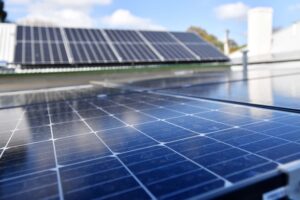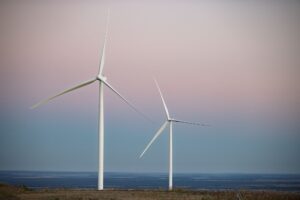Western Australia could become a world leader in the development of solar energy and other resources, but any opportunity to do so could be missed if the renewable energy target is reduced or abandoned.
This is the assessment of the WA Renewable Energy Alliance, which unites many of the renewable energy developers in the state, as well as various industry groups.
“We enjoy the best solar radiation levels near grids and load,” WAREA writes in its submission to the RET Review panel.
“We have highly predictable wind resource that provides up to a 50% capacity factor; good biomass from plantation timber forests; among the strongest wave and tidal resource in Australia; and excellent prospects for solar thermal and geothermal.
“We also have a remote and isolated electricity system that cannot rely on other jurisdictions in times of peak demand. WA has an energy hungry resources industry, still largely reliant on diesel, and many rural and remote communities in which the cost of fuel supply and generation is extraordinarily high.”
WAREA says more than $1 billion has already been invested in around 500MW of generation (see table below), and a further $1.5 billion is in the pipeline. And around 350MW of rooftop solar has been installed on the roofs of households and businesses.
However, it suggests that thousands of additional megawatts of clean electricity could be invested, helping to increase energy security, hedge consumers against conventional fuel prices, reduce emissions, and create thousands of much-needed jobs as the resources industry sheds them.
“We could lead Australia – and the world,” it says. “That potential will not be realised if the Renewable Energy Target is cut or abolished.”
WAREA says the amount of renewables would need to more than double current capacity to meet the RET target, but this could be achieved easily in WA.
Interestingly, because of the state’s excellent solar resources, it could become a leader in Australia for installed solar capacity, and utility-scale projects – a total of more than 2GW. It would also make it one of the grids with the most solar in any advanced economy in the world. (See table below).
It says tens of millions of dollars have been invested in developing a pipeline of projects to meet the target, which was only introduced four years ago. Advanced developments includes:
- 500MW+ of multiple wind projects
- 40MW biomass project (plantation waste fuelled)
- 18MW waste to energy project
- 30MW solar PV project – Mid West Region
- 20MW solar PV project – Mid West Region
- 30MW solar PV project – Perth region
“If the RET were to be reduced, all these investments would effectively be worthless, raising sovereign risk issues.”
The submission also takes note of the problems facing the current grid, which requires subsidy of $500 million a year to make up the difference between the cost of generation of fossil fuels (91 per cent in the state’s main grid), and what consumers are charged. We have previously described it as possibly the most unsustainable grid in the world.
“We also have a remote and isolated electricity system that cannot rely on other jurisdictions in times of peak demand,” the submission notes.
“WA has an energy hungry resources industry, still largely reliant on diesel, and many rural and remote communities in which the cost of fuel supply and generation is extraordinarily high.”
The submission said that the effects of the RET are clearly disruptive to conventional power generation, and has “introduced financial challenges to entities that would very much like to continue driving profit” from assets that have long since paid their owners back.
“This is not an acceptable justification for compromising an entire industry and halting an inevitable transition to a cleaner electricity sector in Australia. The power industry should welcome competition, and governments should encourage competition from distributed generation and from renewable energy generators. “
On the issue of security, WAREA notes that Australia’s oil self-sufficiency has declined from greater than 100% to 48%, with experts forecasting a further decline to 20% by 2020.
“This doesn’t bode well for our future economic resilience. Furthermore, Australia has limited influence on global oil markets and limited ability to protect global oil shipping lanes.
“In contrast, Australia benefits from highly competitive domestic electricity markets and the physical interconnection of many of our utility networks, which are overseen by our governments.
“Renewable energy will not only be cheaper over the long term for Australia’s off-grid mining industry, but will reduce our reliance on diesel for stationary energy generation and contribute to Australia’s balance of trade.
“This same principle applies on micro grids where towns and communities are reliant on diesel, and also by avoiding diesel use in grid-connected peaking plants.”








